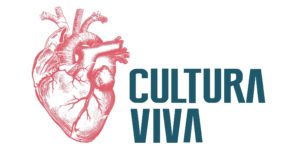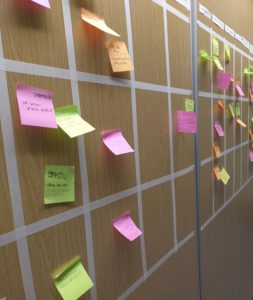DESCRIPTION OF THE PROJECT
The action research project “A new economy for a new culture: transformative cultural and economical innovations in the city of Barcelona” aimed to generate useful resources for cultural sector, and at the same time to become useful for formulating public policies recommendations about how to support existing projects at the cities.
The main goal was to analyze how far innovations at the cultural sector go together with innovations of models of economical sustainability of culture; how far economic sustainability of culture is evolving, and frame, and shape culture. Also, to study how to facilitate a creative process to identify new economical sustainability possibilities linked to new emergent cultural innovations.
The specific objectives were:
- The systematization of resources and knowledge of new business models at cultural production, from previous material and resources (from international to local scope).
- The characterization of a transformative innovation in culture, as long as economic innovations, and observing their evolution and connexion.
- A mapping of business models as long as how the economical innovations are related to innovation in culture at Barcelona
- Researching the economic sustainability or business models from a qualitative analysis of a most significative cases sample at Barcelona.
- To facilitate an auto diagnostic process of the relationship between cultural innovation with economical innovation and policy recommendations, with co-creation tools.
The project included a review of the state of the art in the study of the economy of culture, and an exploratory analysis to characterize cultural-economic innovation in the area of Barcelona. Many and diverse economical innovation practices can be found at present, both local and global, coexisting in the same ecosystem while introducing new ways of producing value and building economic sustainability. Changes are disseminating gradually, and results are irregularly distributed. Quoting the writer William Gibson, “The future is already here; it’s just not very evenly distributed”. In this sense, there are more cases that we must consider in halfway stage of an open or commons model than those being considered pure models.
METHODOLOGY
The methodology was based on combining several methods. We explored a sample of cases, linked to these models, in the area of Barcelona. Then, we run co-creation workshops, with the participation of eleven organizations. More qualitative information were collected throw nine individual interviews to experts in key topics related to the research, as culture economy (Catalan and global), culture and innovation, or open culture. Besides, the project asked for expert participation for the development of the so-called knowledge pills: monographic chapters that explore key concepts such as blockchain technology, social coins, maker movement and the FLOSS economy.
DURATION
2017-2018
FOUNDER
New economy for a new culture is part of a set of researches of the program Cultura Viva, which is run by the Barcelona Institute of Culture (ICUB) involving various collectives, cooperatives and citizen platforms with the aim of generating a laboratory that allows experimentation around the co-production of public policy in cultural matters.
The set of researches explores different issues about production and networks of the “living culture” ecosystem of Barcelona: cultural policies & common goods, cooperative culture, live music spaces, good practices for hiring musicians, and economic innovations (which is the case of the research lead by Dimmons).
RELATED RESOURCES AND PUBLICATIONS
- Full report (in Catalan): Una nova economia per a una nova cultura: Innovacions culturals i econòmiques transformadores a la ciutat de Barcelona. (2018) Institut de Cultura de Barcelona.
- Slides Project presentation at Cultura Viva seminar (26/01/2018)
- Senabre, E., & Fuster Morell, M. (2018). Match-funding as a formula for crowdfunding: a case study on the Goteo.org platform. OpenSym’18, Proceedings of the 14th International Symposium on Open Collaboration, Article 23. ACM Digital Library. doi>10.1145/3233391.3233967
PRESENTATIONS
- “Cicle Coordenades Cultura Viva” (program of sessions for public presentations of results). Every Wednesday in November (2018), in the Palau de la Virreina in Barcelona, there will be a session (in Catalan) to present and debate the research that is part of the Cultura Viva program. The purpose of the sessions is to share and debate the knowledge generated from the researches (which sought, in turn, generate useful information for innovation in general public policies) with those people and collectives that feel related to the topics.
- Presentation of the research in Ciutat Oberta: Biennal de pensament (Thought Biennial: Open City), October 20th 2018, Fàbrica de creació Fabra i Coats, Barcelona.
CREDITS
- Dimmons team:
Research direction: Mayo Fuster Morell
Research assistant: Elisabet Roselló
Research support: Ricard Espelt & Enric Senabre (co-creation workshops)
Editor: Maura Lerga Felip
- Knowledge pills:
Marco Berlinguer, “El FLOSS: un nou model productiu”
Elisabet Roselló, “Economies maker, de la fabricació digital i convergències amb cultura”
Enric Senabre, “El match-funding com a fórmula de microfinançament: un cas d’estudi a Goteo”
Susana Martín Belmonte & Yasuyuki Hirota, “Monedes socials per al bé comú i activitats culturals”
Marc Rocas, “Blockchain i cultura”

